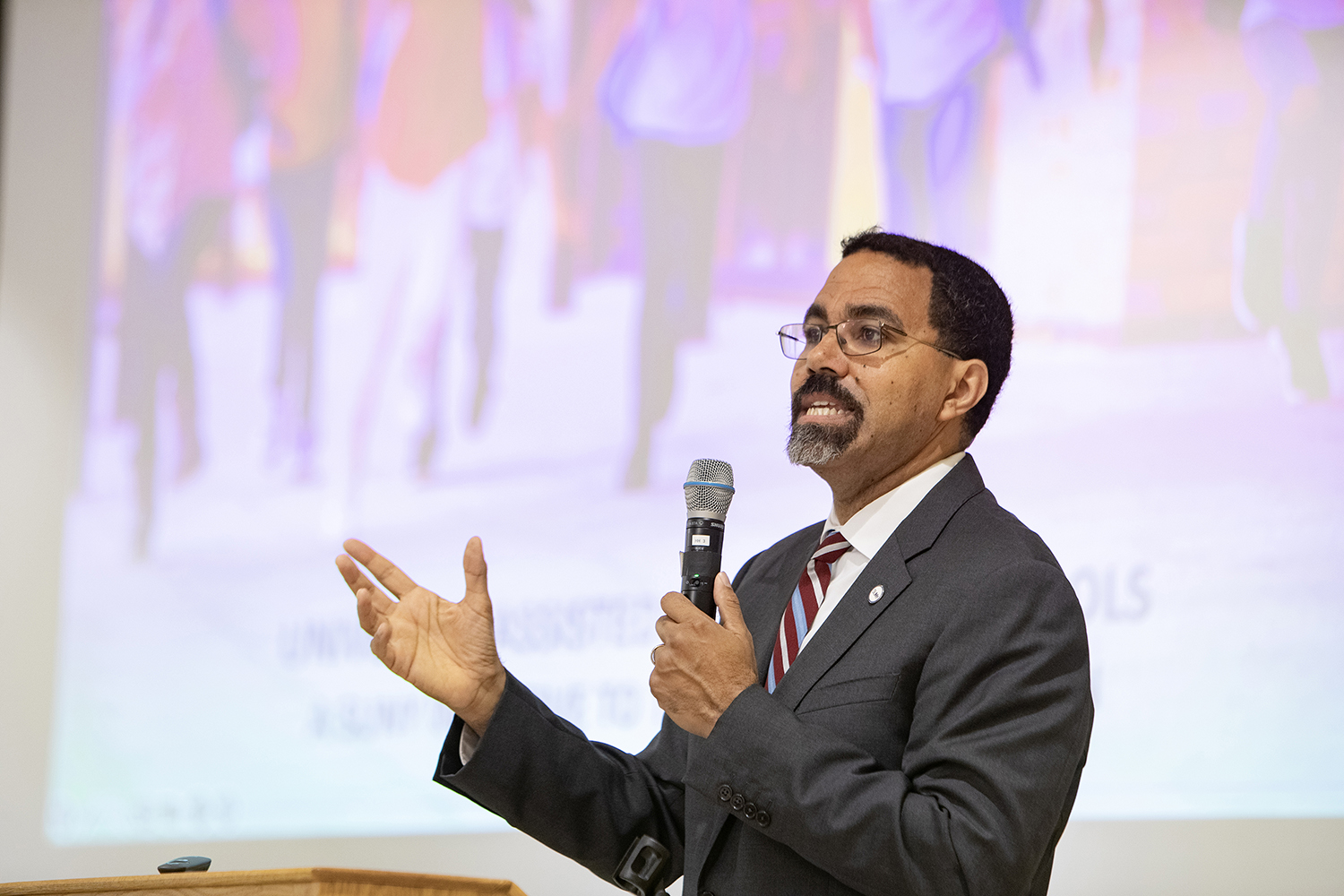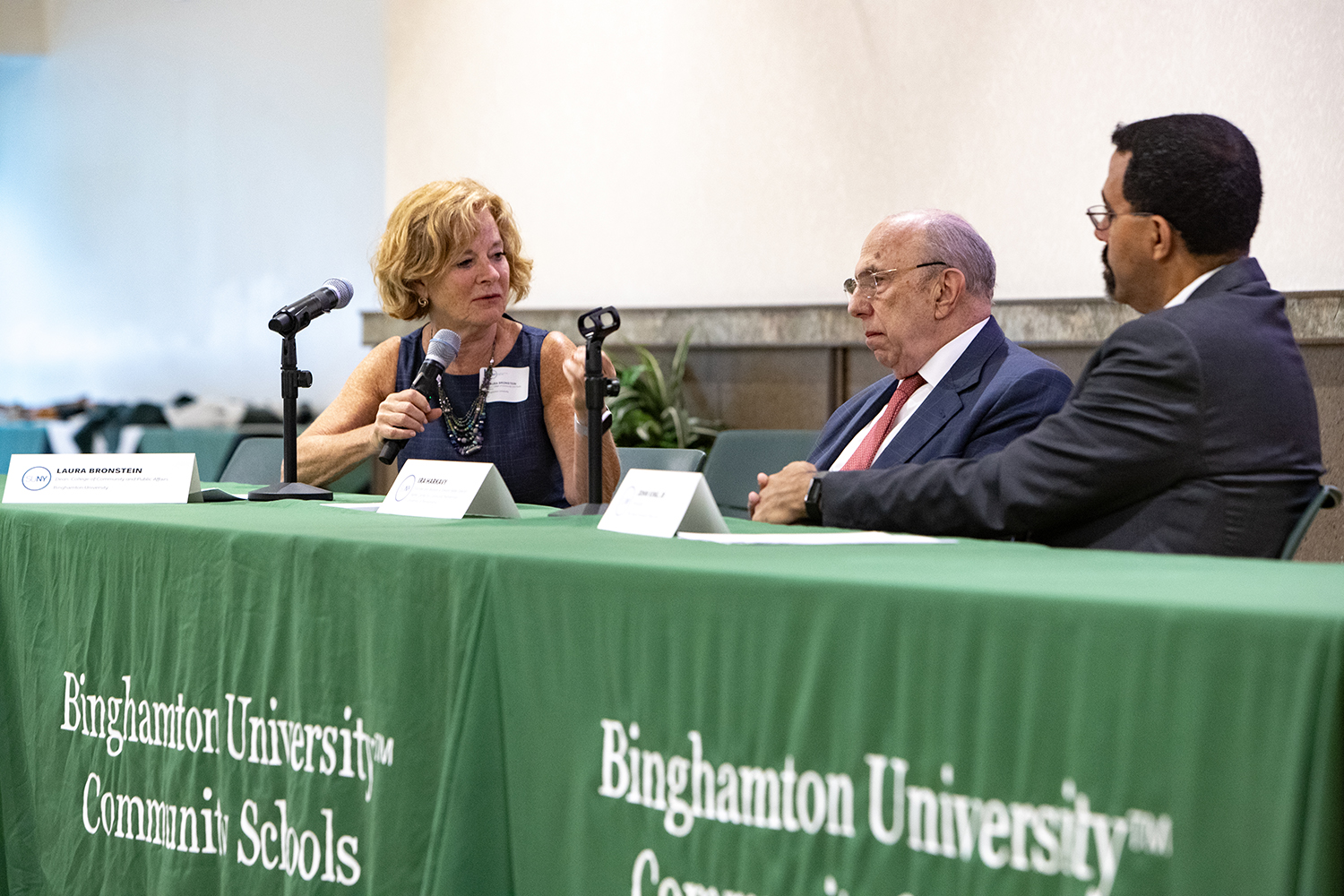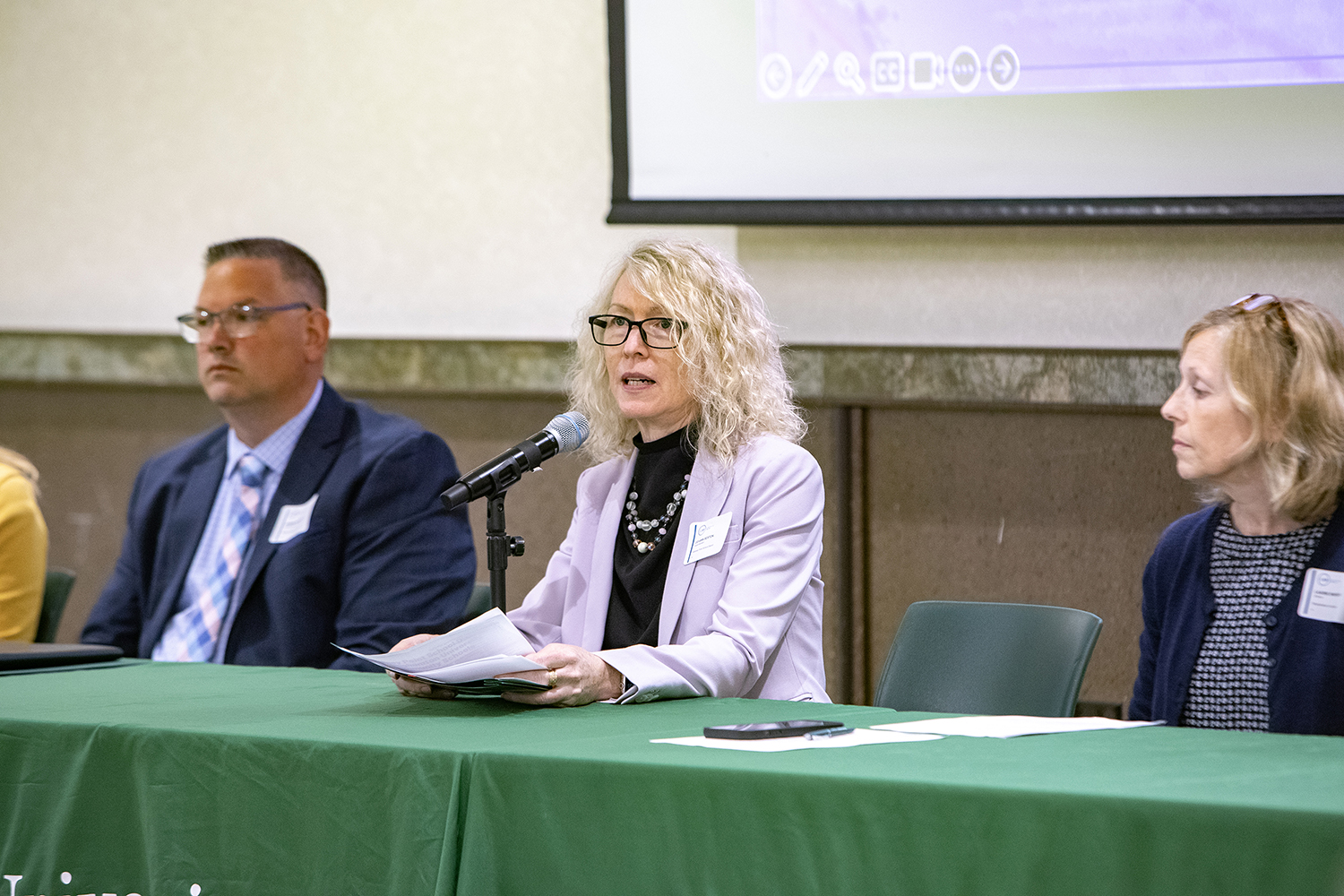Education transformed: Binghamton University hosts University-Assisted Community Schools conference
The University-Assisted Community Schools conference brings educators from across the state to Binghamton University

On Monday, June 24, the College of Community and Public Affairs (CCPA) and the State University of New York (SUNY) System Administration hosted a symposium on “The Promise of SUNY-led University-Assisted Community Schools to Transform Education in New York state.”
This day-long “convening” was a call to action for SUNY to take the lead in implementing the University-Assisted Community School (UACS) model across the state. The UACS model partners universities with schools, families and communities to improve learning outcomes at all schooling levels while enhancing the community’s quality of life.
Laura Bronstein, CCPA dean and founder of the Binghamton University Community Schools (BUCS) program, welcomed more than 120 attendees representing 25 colleges and universities in the SUNY system. She explained the community school model and advocated for why SUNY is uniquely poised to spearhead its implementation.
“The concept of offering educational services, such as after-school programs and mentoring, is not new,” she explained. “What sets a community school apart is its comprehensive approach, which involves assessing the specific needs of the school and its students to determine the necessary programs and support for their success.”
SUNY Chancellor John B. King Jr., State Sen. Lea Webb and State Assemblywoman Donna Lupardo also attended the morning session to help kick off the conference and express their support.
“From being an advocate to an educator to a legislator, this model has always made sense to me,” said Webb, referencing her early work as an education advocate with Citizen Action New York. “It reinforces the idea that the entire community must be involved in the educational experiences of our students — from pre-K all the way up through higher education. We know from example when that doesn’t happen, we lose many students along the way.”
King praised the University’s dedication to resources and leadership in ensuring the success of the BUCS model while acknowledging the challenges of implementing it SUNY-wide.
“Part of what is so important about Binghamton’s approach is that it offers us a path for the entirety of the SUNY system,” he said. “While I don’t want to understate the challenges of replicating this across all our campuses, I think it is an aspiration worth pursuing.”
King noted that the UACS model can be seen as a critical component of SUNY’s success, as it provides students with the preparation they need to thrive in higher education. He highlighted SUNY’s four guiding principles: student success, diversity and inclusion, research and scholarship, and economic development, which are essential in establishing SUNY as one of the top public higher education systems in the country. He sees the UACS model as a key building block in achieving this.
King then joined Ira Harkavy, founder and director of the Netter Center for Community Partnerships at the University of Pennsylvania and a pioneer of the university-assisted community school model, for a conversation on the significance of community-university partnerships in addressing social issues. Harkavy emphasized the need for universities to work together with local communities to identify and accomplish shared goals and objectives as a route to meaningful social change.
The Whitney Point School District, considered a high-needs rural school district, is one of BUCS’s early collaborators. Superintendent JoAnn Sexton talked about how the University came together with local community organizations to address student obstacles, which include a lack of resources such as reliable transportation, adequate housing and food insecurity.
Sexton explained that having the University as a partner has helped the district more strategically address some of the issues its students and families face.
“So often, we are having to react to issues that arise daily,” she said, “but having a university partner who is thinking with that academic mindset has helped us be really smart about the things that we’re doing in making sure that our vision and our work is making sense in the long run for our school, community and for the families and children that we’re working with.”
Bronstein is optimistic about the future of SUNY’s involvement in the UACS. The conference concluded with methodologies for implementation and continued commitments from partners at Binghamton University, the SUNY System Offices of the Chancellor and Provost and the Netter Center to advance this work.
“We are thrilled with the outpouring of interest across the SUNY system to implement university-assisted community schools,” Bronstein said. “Those in attendance — including presidents, provosts, vice presidents, deans, faculty and staff from 25 SUNY higher education institutions — agreed that UACS is a path to transform education across New York state.”



